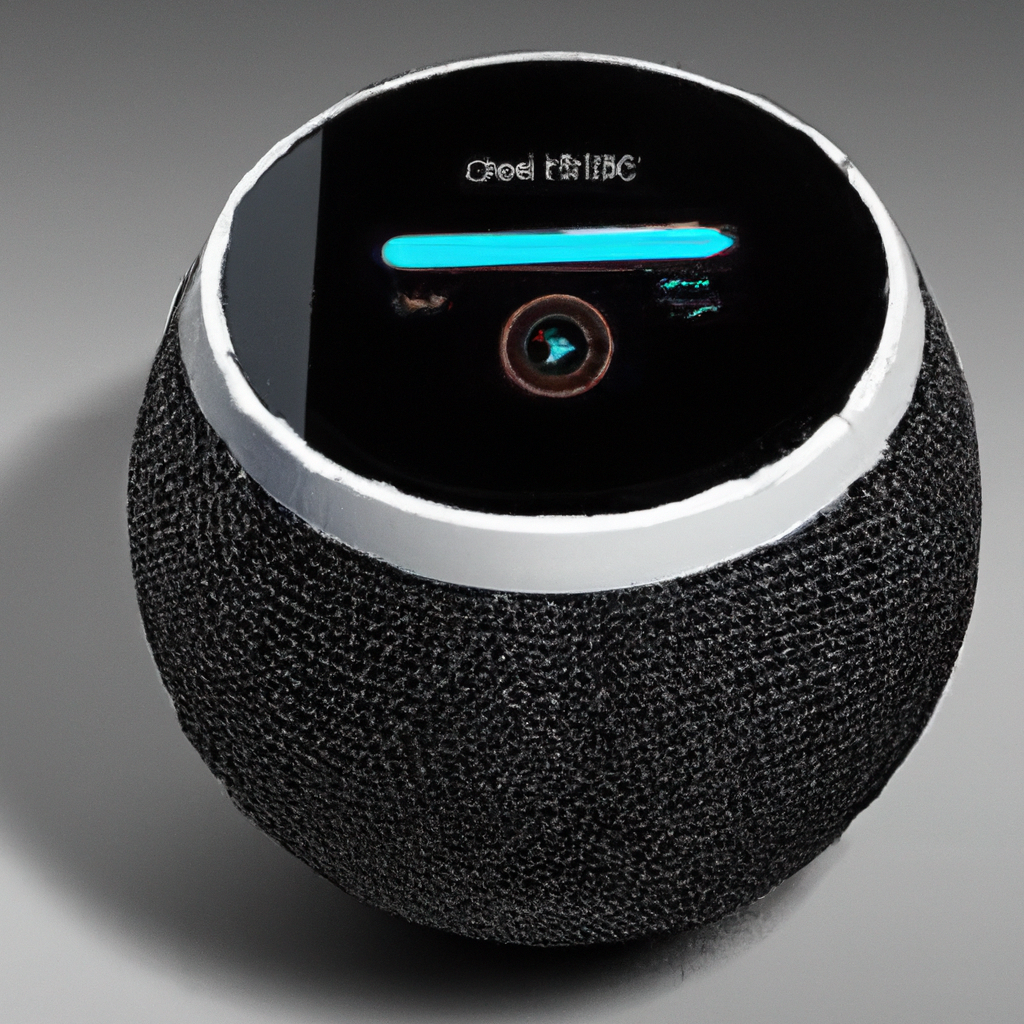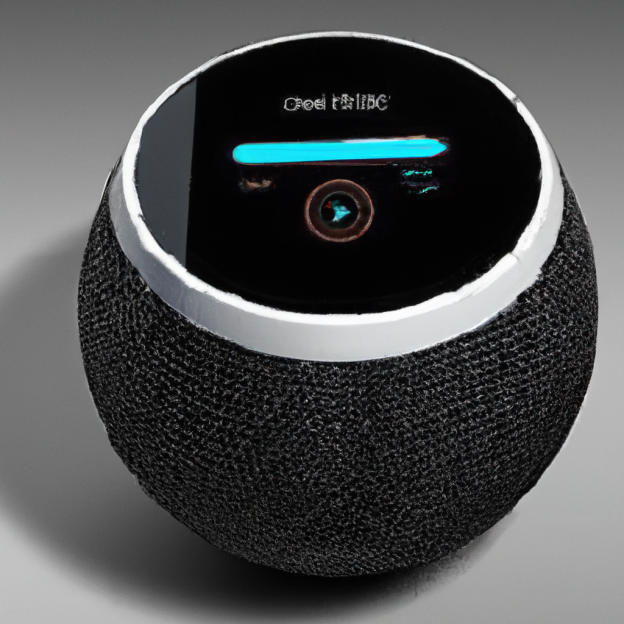So you’ve been talking to Amazon Alexa, asking it to play your favorite songs or tell you the latest weather forecast. But have you ever wondered, is Amazon Alexa an AI? Well, the answer might not be as straightforward as you think. In this article, we’ll take a closer look at the inner workings of Alexa and explore whether it qualifies as an artificial intelligence or is just a cleverly programmed voice-activated assistant. So, let’s unravel the mystery and find out what lies behind the voice that has become a household name.

What is Amazon Alexa?
Overview of Amazon Alexa
Amazon Alexa is a virtual voice assistant developed by Amazon that utilizes artificial intelligence (AI) to provide an interactive and intuitive user experience. It is designed to perform a wide range of tasks and functions through voice commands and can be accessed through various devices, such as smart speakers, smartphones, and smart home devices.
Capabilities of Amazon Alexa
Amazon Alexa is equipped with several innovative features and capabilities that make it a highly versatile virtual assistant. It can answer questions, provide information, play music, set alarms, make calls, send messages, control smart home devices, and even order products from Amazon. Additionally, it is capable of understanding and responding to natural language, making it easy and convenient for users to interact with.
Smart Speaker Market and Alexa’s Dominance
The smart speaker market has seen significant growth in recent years, with Amazon Alexa emerging as a dominant player in the field. The ability of Alexa-powered devices to seamlessly integrate with various smart home technologies and provide a user-friendly experience has contributed to its popularity. As a result, Amazon Alexa holds a significant market share and continues to expand its reach across different industries.
Understanding Artificial Intelligence (AI)
Definition of AI
Artificial Intelligence, commonly referred to as AI, is the branch of computer science dedicated to creating intelligent machines that can simulate human intelligence and perform tasks that would typically require human intelligence. AI encompasses a wide range of technologies, including machine learning, natural language processing, computer vision, and robotics.
AI Technologies and Applications
AI technologies have found applications in various industries and fields. From healthcare to finance, AI has revolutionized processes and enabled the development of innovative solutions. Some notable AI applications include virtual assistants, autonomous vehicles, image recognition, speech recognition, and predictive analytics.
AI in Voice Assistants
Voice assistants, such as Amazon Alexa, rely heavily on AI technologies to understand and respond to user commands. Through advanced natural language processing (NLP) algorithms and automatic speech recognition (ASR) systems, voice assistants can interpret and generate human language effectively. By leveraging AI, voice assistants have become increasingly capable of understanding context, providing relevant information, and adapting to user preferences.
AI Components in Amazon Alexa
Natural Language Processing (NLP)
NLP is a subfield of AI that focuses on the interaction between computers and human language. In the context of Amazon Alexa, NLP enables the system to understand and interpret user commands. Through advanced algorithms, NLP allows Alexa to extract meaning from spoken language, identify keywords, and generate appropriate responses.
Automatic Speech Recognition (ASR)
ASR technology enables Amazon Alexa to convert spoken language into written text. This is a crucial component that allows Alexa to understand user commands accurately. ASR algorithms analyze audio data, identify individual words, and transcribe them into text. The accuracy and speed of ASR play a vital role in the effectiveness of voice assistants like Alexa.
Machine Learning and Deep Learning
Machine learning and deep learning are integral components of Amazon Alexa’s AI capabilities. Machine learning algorithms enable Alexa to improve its functionality and accuracy over time. Through continuous learning, Alexa becomes better at recognizing speech patterns, understanding user preferences, and providing personalized responses. Deep learning models, such as neural networks, have also contributed to the advancement of voice recognition and natural language understanding in Alexa.
AI in Alexa Skills and Smart Home Integration
Alexa’s AI-driven features extend beyond basic voice commands. Through the development of Alexa Skills, users can enhance Alexa’s functionality and add new capabilities. These Skills are created by developers and expand the range of tasks Alexa can perform, such as booking a ride, ordering food, or controlling third-party smart home devices. By leveraging AI technologies, Alexa seamlessly integrates with a wide range of smart home devices, providing users with a centralized control hub.
Alexa’s AI-driven Features
Voice Recognition and Personalization
One of Amazon Alexa’s key features is its ability to recognize and distinguish between different voices. Through advanced algorithms, Alexa can identify different users in a household and personalize responses based on individual preferences. This personalization allows Alexa to provide tailored recommendations, music playlists, and reminders that align with each user’s preferences.
Conversational Ability
Amazon Alexa’s conversational ability is a testament to the advancements in AI technology. Through NLP algorithms and machine learning models, Alexa can engage in natural and interactive conversations with users. It can understand context, ask follow-up questions, and provide relevant information based on the user’s initial command. This conversational ability has greatly enhanced the user experience and made interactions with Alexa more intuitive.
Context Understanding
Context understanding is a crucial aspect of AI that Amazon Alexa excels at. Alexa has the ability to infer contextual information from user interactions and adapt its responses accordingly. For example, if a user asks for the weather forecast, Alexa can provide the current weather conditions, followed by a forecast for the upcoming days. This contextual understanding enables more meaningful and relevant interactions with Alexa.
Predictive Responses and Recommendations
Through AI technologies, Amazon Alexa can analyze user data, including past interactions, preferences, and search history, to provide predictive responses and recommendations. By understanding user behavior and patterns, Alexa can proactively suggest relevant information, products, or services. This predictive ability enhances the overall user experience and delivers personalized content.
Continuous Learning and Updates
Amazon Alexa’s AI capabilities are not static but continuously evolve and improve over time. Through machine learning models, Alexa learns from user interactions, feedback, and updates from Amazon’s backend systems. This continuous learning process ensures that Alexa stays up-to-date with the latest advancements in AI and becomes more accurate and efficient in its responses.

Amazon’s AI Ecosystem
Amazon Web Services (AWS)
Amazon Web Services (AWS) is a comprehensive cloud computing platform offered by Amazon. It provides a range of AI services and tools that developers can leverage to build AI-powered applications and systems. By utilizing AWS, developers can access pre-trained models, deep learning frameworks, and scalable infrastructure to enhance the AI capabilities of their products, including those integrated with Amazon Alexa.
AI Research and Development
Amazon invests heavily in AI research and development to continually enhance its AI-driven products and services, including Amazon Alexa. The company has dedicated teams of researchers and engineers working on cutting-edge AI technologies, exploring new applications, and pushing the boundaries of AI capabilities. This commitment to AI research ensures that Amazon remains at the forefront of innovation in the field.
Partnerships and Acquisitions
To further strengthen its AI ecosystem, Amazon has entered into strategic partnerships and acquired AI-focused companies. Collaborations with research institutions and industry experts enable Amazon to leverage external expertise and access the latest advancements in AI. Acquisitions of AI startups help Amazon acquire talent, technologies, and intellectual property, fueling the company’s AI-driven growth.
Critics’ Perspective on Alexa’s AI
Challenges and Limitations
While Amazon Alexa’s AI capabilities are impressive, there are some challenges and limitations to be aware of. One of the primary challenges is the understanding and interpretation of user commands in complex or ambiguous situations. Alexa may sometimes misunderstand or misinterpret commands, leading to inaccurate responses. Additionally, Alexa’s ability to handle multi-step tasks and more complex conversations is still a work in progress.
Privacy and Security Concerns
Privacy and security concerns regarding Amazon Alexa’s AI capabilities have also been raised. As a voice-activated assistant, Alexa is always listening for its wake word, which means that it is potentially collecting and storing audio data. This has raised concerns about the privacy of user conversations and the potential for misuse or unauthorized access to personal information. However, Amazon has implemented measures to ensure user privacy and allows users to manage their data preferences.
Ethical Implications
The rapid advancement of AI technologies, including those seen in Amazon Alexa, raises ethical considerations. As voice assistants become more human-like in their interactions, questions arise about the boundaries of AI and human relationships. Issues such as user consent, transparency, and potential biases in AI algorithms need to be addressed to ensure ethical use and development of AI-powered devices like Alexa.
Differentiating AI from Human Intelligence
AI as Artificial Narrow Intelligence (ANI)
It is important to differentiate AI from human intelligence. AI, as it exists today, is considered artificial narrow intelligence (ANI), meaning it is designed to excel at specific tasks but lacks the broader cognitive abilities of human intelligence. Amazon Alexa, while highly advanced in its AI capabilities, is limited to performing tasks within its predefined scope and relies on algorithms and machine learning models for decision-making.
AI vs. General Intelligence (AGI)
General Intelligence (AGI) refers to the ability of an AI system to understand, learn, and apply knowledge across a wide range of tasks, similar to human intelligence. While AGI remains a goal for researchers, it is not achieved by virtual assistants like Amazon Alexa. Alexa’s AI is primarily focused on specific domains, such as voice recognition and natural language understanding, rather than possessing an all-encompassing intelligence.
AI Limitations and Human Cognitive Abilities
Despite the significant advancements in AI technology, there are fundamental limitations that differentiate AI from human cognitive abilities. AI systems lack common sense reasoning, intuition, and the ability to understand abstract concepts in the same way humans do. Human cognitive abilities, such as creativity, empathy, and moral reasoning, remain unique to humans and cannot be fully replicated by AI.
Debating Alexa as AI
Amazon’s Definition of Alexa
Amazon defines Alexa as an AI-powered virtual assistant capable of understanding and responding to voice commands. According to Amazon, Alexa leverages artificial intelligence technologies, including natural language processing and machine learning, to provide a personalized and contextually aware user experience. The company’s definition aligns with the widely accepted understanding of AI, indicating that Alexa can be categorized as an AI system.
Perception of AI in Alexa
The perception of AI in Amazon Alexa varies among users. Some perceive Alexa as an advanced AI system due to its ability to understand and respond to voice commands, adapt to user preferences, and continuously learn and improve. Others may have more reserved expectations of what constitutes AI and see Alexa as a voice-activated assistant with limited cognitive capabilities. Ultimately, the perception of AI in Alexa is subjective and influenced by individual knowledge and experiences.
Expert Opinions on Alexa’s AI Capabilities
Experts in the field have provided varying opinions on the AI capabilities of Amazon Alexa. Some experts consider Alexa a significant breakthrough in AI technology, showcasing advancements in voice recognition, natural language understanding, and context awareness. They view Alexa as an embodiment of AI in everyday life. However, others argue that while Alexa exhibits remarkable AI-driven features, it falls short of true artificial general intelligence. These different perspectives reflect the ongoing debates and discussions surrounding the definition and boundaries of AI.
Future of Alexa’s AI Development
Advancements in Voice Recognition
As AI technology continues to evolve, we can expect significant advancements in voice recognition capabilities. Improvements in automatic speech recognition algorithms will enhance Alexa’s ability to accurately interpret and understand user commands, even in noisy or challenging environments. This will result in more seamless and effortless interactions with Alexa.
Integration of AI Technologies
Amazon will likely continue integrating new AI technologies into Alexa to enhance its capabilities. The integration of computer vision, natural language understanding, and sentiment analysis will enable Alexa to provide even more comprehensive and personalized responses. This integration will contribute to a more intelligent and efficient user experience.
Expanding Alexa’s Cognitive Abilities
In the future, Amazon may explore ways to expand Alexa’s cognitive abilities. This could involve advancements in deep learning and neural networks, allowing Alexa to emulate more complex human cognitive processes and understanding. By incorporating broader knowledge domains and improving reasoning capabilities, Alexa could become more adept at providing insightful and meaningful responses.
Conclusion
Amazon Alexa is a prime example of the remarkable AI capabilities that have emerged in recent years. Through the integration of advanced technologies such as natural language processing, automatic speech recognition, and machine learning, Alexa has revolutionized the way we interact with technology. While Alexa falls under the umbrella of artificial intelligence, it is essential to recognize its limitations compared to human intelligence. Nonetheless, the future of Alexa’s AI development holds great potential, with advancements in voice recognition, integration of AI technologies, and expanding cognitive abilities driving its ongoing evolution. As technology continues to evolve, we can expect Alexa and similar AI-powered systems to play an increasingly significant role in advancing AI and reshaping our daily lives.
